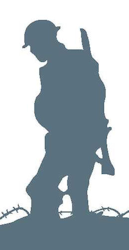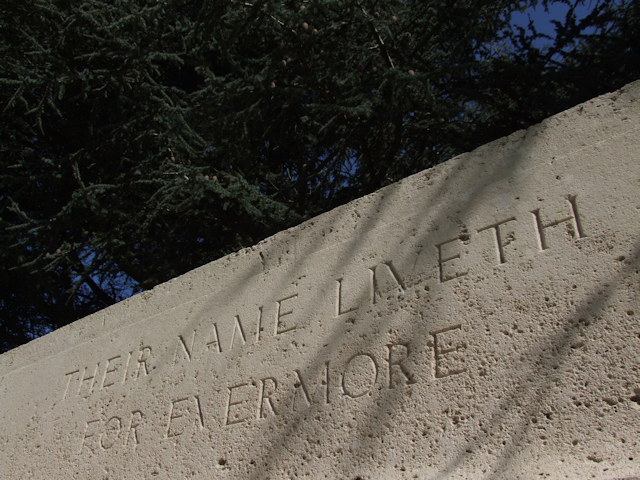Name
Henry George Gatward
Conflict
First World War
Date of Death / Age
25/11/1917
31
Rank, Service Number & Service Details
Private
35553
Essex Regiment
4th Bn.
Awards: Service Medals/Honour Awards
British War and Victory medals
Cemetery/Memorial: Name/Reference/Country
JERUSALEM MEMORIAL
Panels 33 to 39.
Israel and Palestine (including Gaza)
Headstone Inscription
NA
UK & Other Memorials
Not on the Therfield memorials
Pre War
Born on 24 Feb 1886 in Therfield, Hertfordshire son of Thomas and Julia Ann (Hagger) Gatward.
1901 census details
The family was living in Dane End, Therfield and father Thomas ,55, an agricultural labourer was married to Julia, 49. They had Henry 15, Walter, 11 and Charles aged 9.
1911 census details
Henry, now 24 was a farm labourer and Charlie was a bricklayer’s labourer but Walter had left home.
Wartime Service
His medals card shows the an entitlement to the War and Victory medals only, so we know that he did not serve abroad until after the beginning of 1916.
He was put into the 4th Battalion, Essex Regiment (in the 161st. Brigade, 54th Division). This particular battalion had gone into the infamous Gallipoli campaign and had landed on August 12th 1915 at Suvla Bay but Henry joined them in Egypt after they had come out of that dreadful area in December 1915.
He spent the time from when he arrived in early 1916 until March 1917 on the East & West banks of the Suez Canal. They were mainly defending, road, pipe & rail laying, with the odd 'Desert column' being sent out to track down 'Senussi tribesmen' on the west Bank, or Turkish outposts on the East bank.
An action at Romani on 4th to 5th August 1916 was his only action until the Allied Forces started to advance towards Palestine to take the Turks on the offensive.
In Palestine, Henry’s regiment was involved in the first Battle of Gaza in the spring of 1917.
At the First Battle (26 March 1917), the main attack was made by 53rd (Welsh) Division with 161st Brigade in support. Towards the end of the day the 161st Brigade was ordered to take Green Hill: despite heavy fighting the attack was a complete success and the brigade held the whole position by nightfall. However, confusion set in, and 53rd Division withdrew during the night. The men of 161st Brigade were enraged by the order to withdraw. The following day patrols showed that the Turks had not reoccupied the position; 1/7th Battalion was sent up to support the patrols, but a violent Turkish counter-attack finished the battle. Casualties were heavy, including many men missing after the fighting withdrawal. The brigade was not heavily engaged during the Second Battle of Gaza (17–19 April 1917:) 1/7th Bn was detached and assigned to the Imperial Camel Corps (ICC), which was protecting the left flank of 54th Division, while the rest of the brigade was in divisional reserve and most of its casualties were due to shellfire.
During the summer months 161st Brigade held the line without suffering serious casualties, and by the end of October was fully up to strength for the forthcoming Third Battle of Gaza (1–3 November 1917). On the morning of 2 November the 54th Division put in a holding attack at the El Arish Redoubt. The fighting was confused, but the division took all its objectives. However, the 1/7th Bn found that the fourth objective, 'John Trench', was a mere scrape in the ground and could not be held. The brigade commander considered that this battalion had the hardest time of all that day. At 04.00 on 3 November, 1/7th they made a renewed attempt to take their objective, but were again held up by Turkish machine-gun fire, with heavy casualties. During the rapid pursuit after the fall of Gaza, 1/4th (Henry’s) and 1/6th Essex assisted the Anzac Mounted Division, while 1/5th and 1/7th were left marching in the rear.
As well as battle casualties, the whole brigade suffered considerably from influenza during November–December 1917 and throughout 1918.
Henry was said to be ‘killed in action’ on Sunday November 25th 1917 and is remembered on the Jerusalem Memorial in Israel, panels 33-39.
He was the third son of Thomas and Julia to be killed. Walter and Charlie in 1916 and now Henry.
Additional Information
Brother of Walter Reginald Gatward who died on 19 Apr 1916 and Charles Gatward who died on 19 Aug 1917.
Acknowledgments
Malcolm Lennox, Jean Handley



